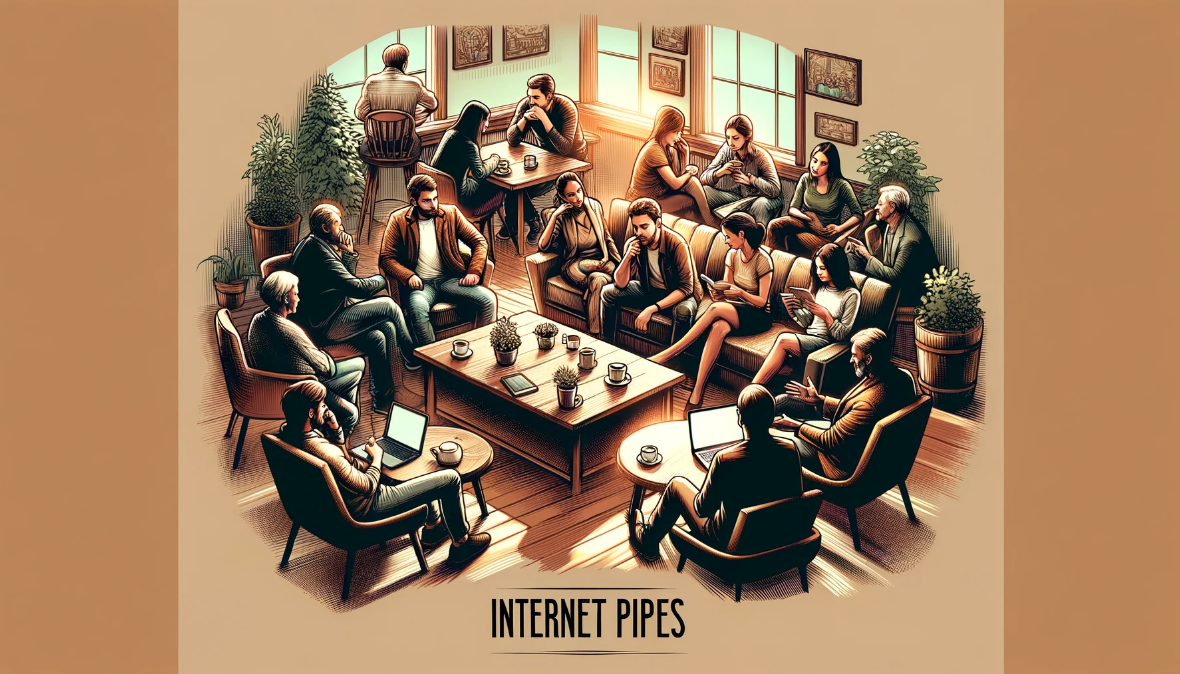The Transformative Power of Small Meetups: Lessons from a Boston Builders Gathering
For anyone organizing community events, this story isn't just mine; it's a testament to the impact that small, focused meetups can have on participants and communities at large.

Back in March, in a cozy venue in Boston, I had the privilege of hosting the "Internet Pipes Meetup" with five other vibrant community builders. It was a small group, but the energy was palpable. As we shared our trials and triumphs, I was struck by the unique perspectives each person brought to the table—reminding me just how crucial such gatherings are.
For anyone organizing community events, this story isn't just mine; it's a testament to the impact that small, focused meetups can have on participants and communities at large.
Fresh Perspectives on Common Goals
The magic of small meetups lies in their ability to reveal new insights into familiar challenges.
Each participant in our group had unique experiences with "Internet Pipes," yet our common goals allowed us to deepen our understanding through each other's stories.
- Set a theme for each meetup: Focus discussions around a common challenge or interest to keep conversations relevant and engaging.
- Encourage diverse viewpoints: Actively seek to include participants from varied backgrounds to enrich the dialogue.
- Capture and share insights: Use tools like collaborative documents or digital whiteboards to record ideas during the meetup and share them with the group afterwards.
- Rotate leadership: Allow different attendees to lead the discussion each time to introduce new styles and perspectives.
Building Meaningful Connections
Our small group format enabled us to not only share knowledge but also build trust and camaraderie—key ingredients for a strong community.
- Keep the group size manageable: Limit numbers to ensure everyone can contribute meaningfully to the conversation.
- Utilize breakout sessions: Divide into smaller groups for part of the meetup to allow deeper interaction.
- Provide structured networking time: Allocate time for attendees to form connections beyond the main discussion.
- Create a regular schedule: Hold meetups regularly to maintain momentum and build lasting relationships.
Leveraging Social Engagement
The positive buzz from our meetup didn't end at the venue. We continue to stay in touch via Whatsapp. It turns out five strangers had more in common than you might think.
- Prepare social media snippets: Encourage attendees to share their takeaways and photos on social media during and after the event.
- Host a post-event virtual discussion: Offer an online session after the event to involve those who couldn't attend in person.
- Solicit and act on feedback: Ask for input on what worked and what could be improved to make future meetups even more valuable.
Conclusion
Last night's meetup wasn't just another event; it was a moment of connection for some of the most passionate Pipes members.
Small meetups have the power not only to solve problems but also to forge a network of motivated and supportive peers, ready to propel each other forward.
Remember: the strength of a community lies in its ability to come together and share openly in a supportive environment.
By hosting these small – yet mighty! – gatherings, you're not just filling a room; you're nurturing a thriving community.
